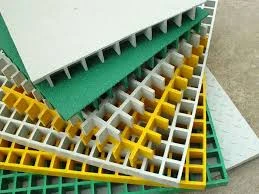
-
 Afrikaans
Afrikaans -
 Albanian
Albanian -
 Amharic
Amharic -
 Arabic
Arabic -
 Armenian
Armenian -
 Azerbaijani
Azerbaijani -
 Basque
Basque -
 Belarusian
Belarusian -
 Bengali
Bengali -
 Bosnian
Bosnian -
 Bulgarian
Bulgarian -
 Catalan
Catalan -
 Cebuano
Cebuano -
 China
China -
 China (Taiwan)
China (Taiwan) -
 Corsican
Corsican -
 Croatian
Croatian -
 Czech
Czech -
 Danish
Danish -
 Dutch
Dutch -
 English
English -
 Esperanto
Esperanto -
 Estonian
Estonian -
 Finnish
Finnish -
 French
French -
 Frisian
Frisian -
 Galician
Galician -
 Georgian
Georgian -
 German
German -
 Greek
Greek -
 Gujarati
Gujarati -
 Haitian Creole
Haitian Creole -
 hausa
hausa -
 hawaiian
hawaiian -
 Hebrew
Hebrew -
 Hindi
Hindi -
 Miao
Miao -
 Hungarian
Hungarian -
 Icelandic
Icelandic -
 igbo
igbo -
 Indonesian
Indonesian -
 irish
irish -
 Italian
Italian -
 Japanese
Japanese -
 Javanese
Javanese -
 Kannada
Kannada -
 kazakh
kazakh -
 Khmer
Khmer -
 Rwandese
Rwandese -
 Korean
Korean -
 Kurdish
Kurdish -
 Kyrgyz
Kyrgyz -
 Lao
Lao -
 Latin
Latin -
 Latvian
Latvian -
 Lithuanian
Lithuanian -
 Luxembourgish
Luxembourgish -
 Macedonian
Macedonian -
 Malgashi
Malgashi -
 Malay
Malay -
 Malayalam
Malayalam -
 Maltese
Maltese -
 Maori
Maori -
 Marathi
Marathi -
 Mongolian
Mongolian -
 Myanmar
Myanmar -
 Nepali
Nepali -
 Norwegian
Norwegian -
 Norwegian
Norwegian -
 Occitan
Occitan -
 Pashto
Pashto -
 Persian
Persian -
 Polish
Polish -
 Portuguese
Portuguese -
 Punjabi
Punjabi -
 Romanian
Romanian -
 Russian
Russian -
 Samoan
Samoan -
 Scottish Gaelic
Scottish Gaelic -
 Serbian
Serbian -
 Sesotho
Sesotho -
 Shona
Shona -
 Sindhi
Sindhi -
 Sinhala
Sinhala -
 Slovak
Slovak -
 Slovenian
Slovenian -
 Somali
Somali -
 Spanish
Spanish -
 Sundanese
Sundanese -
 Swahili
Swahili -
 Swedish
Swedish -
 Tagalog
Tagalog -
 Tajik
Tajik -
 Tamil
Tamil -
 Tatar
Tatar -
 Telugu
Telugu -
 Thai
Thai -
 Turkish
Turkish -
 Turkmen
Turkmen -
 Ukrainian
Ukrainian -
 Urdu
Urdu -
 Uighur
Uighur -
 Uzbek
Uzbek -
 Vietnamese
Vietnamese -
 Welsh
Welsh -
 Bantu
Bantu -
 Yiddish
Yiddish -
 Yoruba
Yoruba -
 Zulu
Zulu
frp fuel tank
Understanding FRP Fuel Tanks Advantages and Applications
Fiber Reinforced Plastic (FRP) fuel tanks have become increasingly popular in recent years due to their unique properties and advantages over traditional fuel storage solutions. Constructed from composite materials, these tanks offer a lightweight, corrosion-resistant alternative that is particularly well-suited for various industries, including automotive, aviation, and marine applications.
Understanding FRP Fuel Tanks Advantages and Applications
Weight is another critical factor in fuel tank design. FRP tanks are considerably lighter than their traditional steel or aluminum counterparts. This reduction in weight can lead to improved fuel efficiency, especially in transportation applications where every pound counts. For instance, in the aviation industry, using FRP fuel tanks can help reduce the overall weight of an aircraft, leading to lower fuel consumption and operational costs.
frp fuel tank

Moreover, FRP fuel tanks can be manufactured in various shapes and sizes, allowing for greater flexibility in design and installation. Their ability to be molded into complex shapes means they can fit into spaces where traditional tanks might not, making them ideal for custom applications. This versatility also enables engineers to optimize the space within vehicles or vessels, maximizing storage capacity without compromising performance.
Safety is another paramount consideration in fuel storage. FRP tanks are designed with advanced safety features, such as impact resistance and leak prevention. The construction of these tanks often includes multiple layers of material, enhancing their durability and reducing the likelihood of leaks or ruptures. In addition, FRP tanks can be equipped with monitoring systems that detect changes in pressure or fuel levels, providing an added layer of security.
Despite their numerous advantages, it is essential to consider the environmental impact of FRP manufacturing. While the tanks themselves offer a long service life, the production process of composite materials can be resource-intensive. Therefore, ongoing research and development aim to create more sustainable manufacturing practices for FRP products.
In conclusion, FRP fuel tanks represent a significant advancement in fuel storage technology. Their corrosion resistance, lightweight nature, design versatility, and safety features make them a preferred choice across various industries. As technology and manufacturing processes continue to evolve, FRP tanks are likely to play an even more vital role in the future of fuel management and storage solutions.
Latest news
-
FRP Shell Solutions Durable Fiberglass & GRP Shell ProductsNewsMay.22,2025
-
GRP Grating Lightweight & Durable Fiberglass Floor Grating SolutionsNewsMay.22,2025
-
High-Strength GRP/FRP Duct Systems Corrosion-Resistant & DurableNewsMay.22,2025
-
Durable & Corrosion-Resistant Fiberglass Chemical Tanks FRP SolutionsNewsMay.21,2025
-
Fiberglass Pipe Insulation Fittings High-Temp & Energy-Efficient SolutionsNewsMay.21,2025
-
High-Pressure Fiberglass Piping Systems Durable & Corrosion-Resistant FRP SolutionsNewsMay.20,2025









